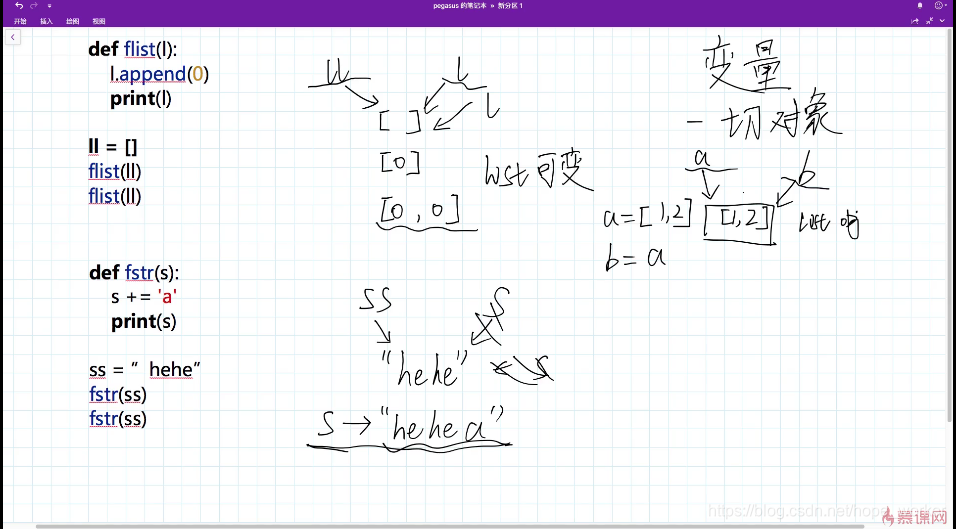
print("""
There is only one type of parameter passing in Python, which is object reference passing.
In the function body, mutable and immutable objects have different behaviours.
""")
def fl(l):
l.append(1)
print(l)
def fs(s):
s += 'a'
print(s)
ll = []
fl(ll)
fl(ll)
ss = "hehe"
fs(ss)
fs(ss)
print("#####################")
print("""
a test
""")
def clear_list(l):
l = []
ll = [1, 2, 3]
clear_list(ll)
print(ll)
print("""
default parameter's side effect.
default parameters take effect only once.
""")
def flist(l=[1], ll=[2]):
l.append(1)
ll.append(2)
print(l)
print(ll)
flist()
flist()
output
There is only one type of parameter passing in Python, which is object reference passing.
In the function body, mutable and immutable objects have different behaviours.
[1]
[1, 1]
hehea
hehea
#####################
a test
[1, 2, 3]
default parameter's side effect.
default parameter take effect once.
[1, 1]
[2, 2]
[1, 1, 1]
[2, 2, 2]
